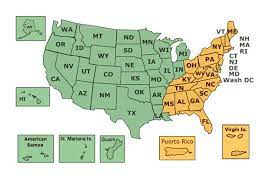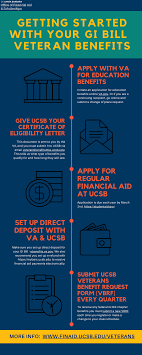Tuition Assistance for Dependents of Disabled Veterans
As a way to recognize the sacrifices made by disabled veterans, various educational benefits are available to their dependents. These programs aim to provide financial assistance and support for dependents pursuing higher education.
Post-9/11 GI Bill Transferability
The Post-9/11 GI Bill allows eligible service members to transfer their unused education benefits to their spouse or children. This benefit can cover tuition and fees, housing allowance, and even provide a stipend for books and supplies.
Survivors’ and Dependents’ Educational Assistance Program (DEA)
The DEA program offers educational assistance to dependents of disabled veterans who have a service-connected disability rating of at least 20%. Under this program, eligible dependents can receive funding for degree programs, vocational training, apprenticeships, and more.
Fry Scholarship
The Fry Scholarship provides educational benefits to the children and surviving spouses of service members who died in the line of duty after September 10, 2001. This scholarship covers tuition and fees at any public institution in the United States.
State-specific Programs
In addition to federal programs, many states offer their own tuition assistance programs for dependents of disabled veterans. These state-specific initiatives provide additional financial aid and support tailored to the needs of local communities.
Applying for Tuition Assistance
To apply for these tuition assistance programs, dependents will need to gather necessary documents, such as proof of eligibility, transcripts, and completed application forms. It is important to carefully review the requirements and deadlines for each program to maximize the chances of receiving funding.
Conclusion
Tuition assistance programs for dependents of disabled veterans play a crucial role in making higher education more accessible. These benefits not only alleviate financial burdens but also honor the sacrifices made by our veterans. If you are a dependent of a disabled veteran, explore these programs and take advantage of the opportunities available to you.
Unlocking Educational Opportunities: A Guide to Tuition Assistance for Dependents of Disabled Veterans
- 1. What is the Post-9/11 GI Bill and how does it benefit dependents of disabled veterans?
- 2. How can I transfer my unused education benefits to my spouse or children?
- 3. Who is eligible for the Survivors’ and Dependents’ Educational Assistance Program (DEA)?
- 4. What educational expenses does the Fry Scholarship cover?
- 5. Are there any state-specific tuition assistance programs available for dependents of disabled veterans?
- 6. What documents do I need to gather when applying for tuition assistance as a dependent?
- 7. How can I find out more information about these tuition assistance programs?
1. What is the Post-9/11 GI Bill and how does it benefit dependents of disabled veterans?
The Post-9/11 GI Bill is a federal program that provides educational benefits to eligible veterans who have served after September 10, 2001. However, this program also offers a significant benefit for dependents of disabled veterans. Under this bill, eligible service members can transfer their unused education benefits to their spouse or children. This means that dependents of disabled veterans can receive financial assistance to cover tuition and fees, housing allowance, and even receive a stipend for books and supplies. The Post-9/11 GI Bill not only helps disabled veterans in pursuing higher education but also supports their dependents in achieving their educational goals.
2. How can I transfer my unused education benefits to my spouse or children?
Transferring unused education benefits to your spouse or children can be done through the Post-9/11 GI Bill. Eligible service members have the option to transfer their unused benefits to their dependents, providing them with financial assistance for higher education. This benefit covers tuition and fees, housing allowance, and even provides a stipend for books and supplies. By taking advantage of this program, you can ensure that your loved ones have the opportunity to pursue their educational goals and build a brighter future.
3. Who is eligible for the Survivors’ and Dependents’ Educational Assistance Program (DEA)?
The Survivors’ and Dependents’ Educational Assistance Program (DEA) provides educational assistance to dependents of disabled veterans who have a service-connected disability rating of at least 20%. This program extends its support to spouses, children, and even stepchildren of eligible disabled veterans. The DEA program offers funding for various educational pursuits, including degree programs, vocational training, apprenticeships, and more. It serves as a valuable resource for dependents seeking financial assistance to pursue their educational goals and build a brighter future.
4. What educational expenses does the Fry Scholarship cover?
The Fry Scholarship covers various educational expenses for eligible dependents of service members who died in the line of duty after September 10, 2001. This scholarship provides funding for tuition and fees at any public institution in the United States, allowing dependents to pursue their educational goals without worrying about the financial burden. In addition to covering tuition and fees, the Fry Scholarship also includes a monthly housing allowance and a stipend for books and supplies. This comprehensive support ensures that dependents can focus on their education and have the necessary resources to succeed academically.
5. Are there any state-specific tuition assistance programs available for dependents of disabled veterans?
Yes, there are state-specific tuition assistance programs available for dependents of disabled veterans. Many states recognize the importance of supporting these dependents and have established their own initiatives to provide additional financial aid and resources. These state-specific programs are designed to complement federal benefits and cater to the unique needs of local communities. It is advisable for dependents to research and explore these programs in their respective states to take advantage of the additional support available to them.
6. What documents do I need to gather when applying for tuition assistance as a dependent?
When applying for tuition assistance as a dependent of a disabled veteran, there are several important documents you will need to gather. These may include proof of your dependency status, such as a birth certificate or marriage certificate, to establish your relationship with the disabled veteran. Additionally, you may need to provide documentation of the veteran’s disability rating, such as a letter from the Department of Veterans Affairs (VA). Transcripts from previous educational institutions and completed application forms will also be required. It is crucial to carefully review the specific requirements outlined by the program you are applying to and ensure that you have all the necessary documents in order to maximize your chances of receiving tuition assistance.
7. How can I find out more information about these tuition assistance programs?
To find out more information about tuition assistance programs for dependents of disabled veterans, there are several resources you can utilize. Firstly, you can visit the official website of the Department of Veterans Affairs (VA) to explore detailed information about the various programs available. The VA’s website provides comprehensive guidance on eligibility requirements, application processes, and frequently asked questions. Additionally, reaching out to your local VA office or speaking with a representative from a veterans’ service organization can provide valuable insights and assistance in navigating these programs. It is essential to gather as much information as possible to ensure you understand the specific requirements and benefits associated with each program.


